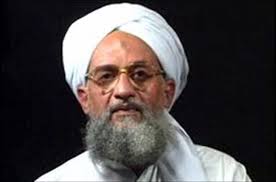In a 55-minute long video, al Qaeda announced it will launch a new branch in the Indian subcontinent.
Speaking in the video, al Qaeda leader Ayman al-Zawahiri said the purpose is to “wage jihad against its enemies, to liberate its land, to restore its sovereignty, and to revive its Caliphate.”
Al-Zawahiri also said he seeks to gain support “for the vulnerable” in Myanmar and Bangladesh; in the Indian states of Assam and Gujarat; and in Kashmir, the disputed region between India and Pakistan. He called for “rescue” from “injustice, oppression, persecution, and suffering” in these areas.
Some analysts view al Qaeda’s announcement as an indication they’re struggling for followers as ISIS gains support in the global Islamist movement.
“I don’t think this will do a lot to win over constituents,” said Bernard Haykel, professor of Near Eastern Studies at Princeton University, about the India announcement. “They are losing a lot of constituents to the Islamic State, and they are mostly Arabs.”
If ISIS undermines al Qaeda, “it’s going to affect funding,” said Ajit Singh, senior fellow at South Asia Terrorism Portal in New Delhi. The radicalized Muslims are more likely to fund ISIS.
“That’s why al Qaeda is trying to increase its influence,” he said. Singh says it’s not al Qaeda’s first time trying to gain a foothold in India.
India, a predominantly Hindu nation, has a 13% Muslim population, according to the country’s census. Inter-religious relations have become tense before. In 2002, Gujarat was wracked with anti-Muslim violence, in which more than 1,000 people, mostly Muslims, were killed.
Most of the world’s Muslims live in Asia, with about 1 billion in Asia-Pacific and about 322 million in the Middle East and North Africa, according to the Pew Research Center.
CNN

